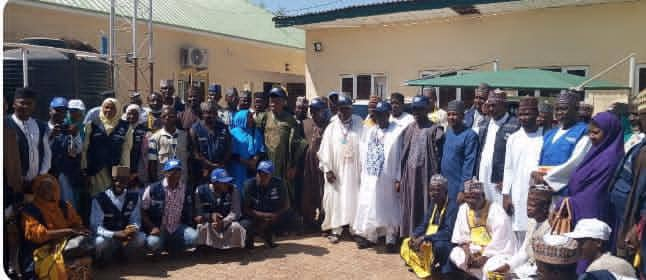By Fatima Mukhtar
As part of activities marking this year’s World Polio Day, the Sokoto State Government in collaboration with the United Nations Children’s Fund (UNICEF) has renewed its commitment to completely eradicate polio and other vaccine-preventable diseases across the North-West region.
Speaking at an event in Sokoto, officials from the state government and UNICEF emphasized the importance of sustaining immunisation coverage to ensure that no child is left unprotected. The campaign, themed “No More Zero Dose,” targets children who have not received any routine immunisation, particularly in remote communities.
The Sokoto State Primary Health Care Development Agency, with support from UNICEF and other partners, deployed more than 2,700 vaccination teams across all 23 local government areas for the second round of the Outbreak Response (OBR) exercise.
Dr. Zuwaira Hassan, a representative of UNICEF, said the renewed effort aligns with global strategies to strengthen routine immunisation and protect children against all forms of polio. She noted that sustained collaboration between the state government, traditional institutions, and health partners remains vital to reaching underserved populations.
Governor Ahmed Aliyu of Sokoto, represented by his deputy, reaffirmed his administration’s commitment to strengthening the health sector and ensuring adequate funding for immunisation programmes. He called on parents and caregivers to make their children available for vaccination, stressing that polio eradication remains a shared responsibility.
The campaign also featured awareness activities, including the launch of a new advocacy song titled *“No More Zero Dose”*, produced to promote immunisation awareness and community participation.
Officials from the World Health Organization (WHO) and the National Primary Health Care Development Agency (NPHCDA) who attended the event commended Sokoto State for maintaining strong surveillance and prompt outbreak response, urging continued vigilance to prevent the re-emergence of the virus.
Nigeria was declared free of wild poliovirus in 2020, but outbreaks of variant poliovirus type 2 (cVPV2) have continued to pose challenges in some parts of the country, particularly in the North-West and North-East regions.
Health experts say that sustained vaccination, community mobilisation, and routine surveillance will be crucial in ensuring that Nigeria maintains its polio-free status.




